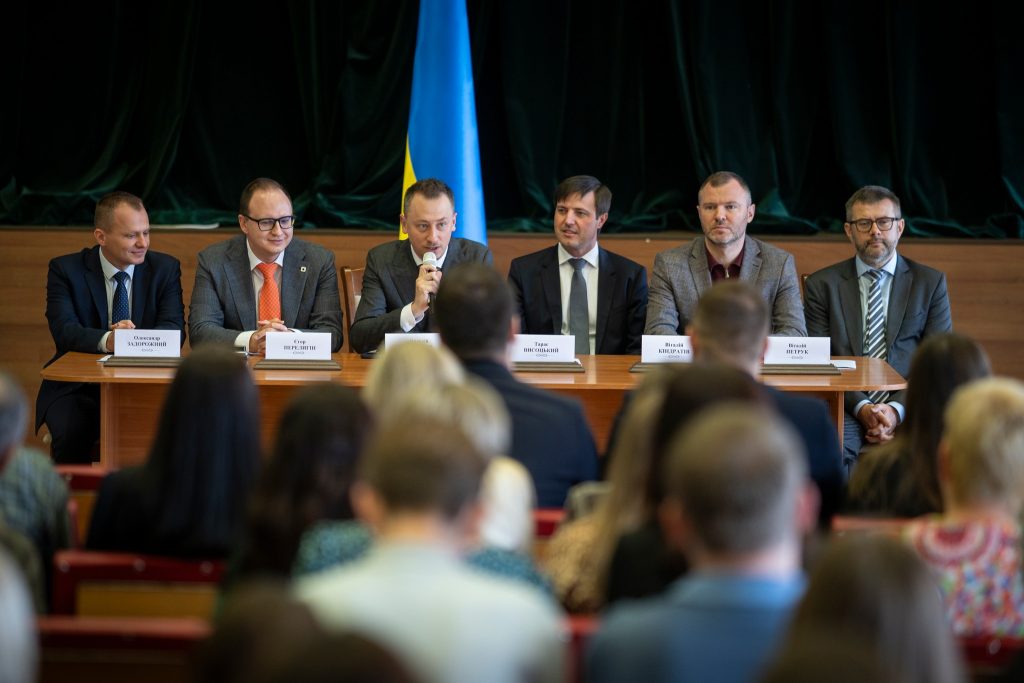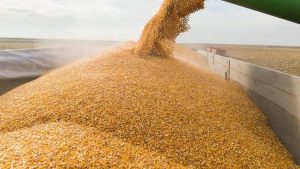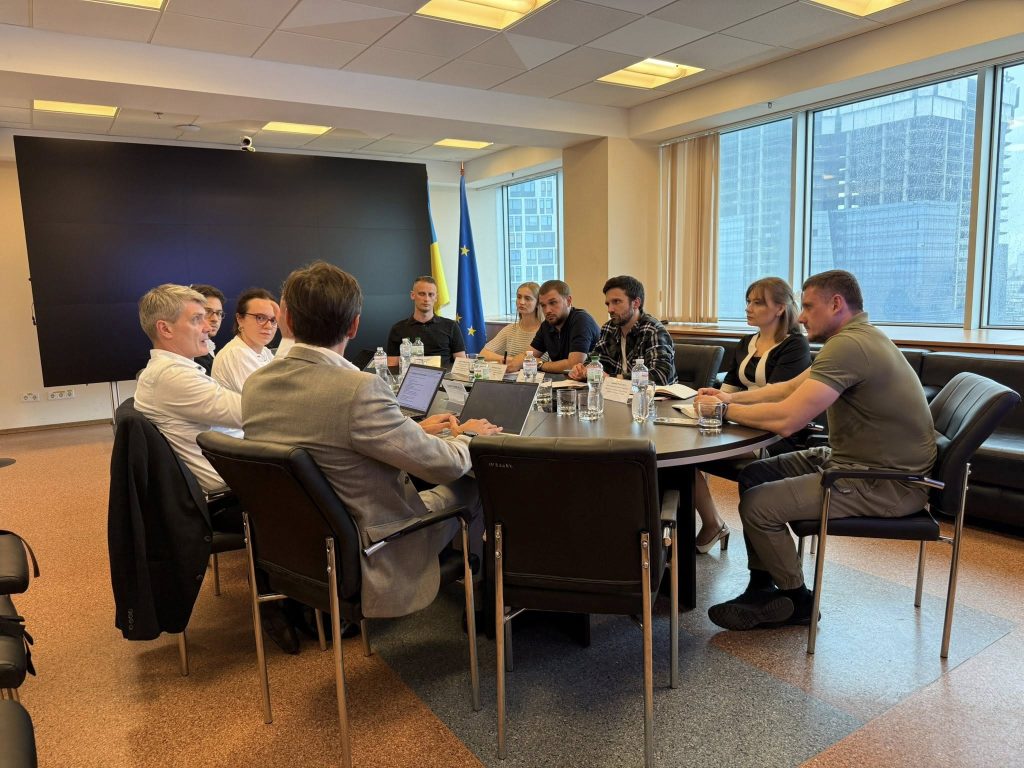The reformed Ministry of Economy outlined key areas of work

The new structure, the Ministry of Economy, Environment and Agriculture, will become the largest in the government.
This was reported by the press service of the ministry.
The Minister of Economy, Environment and Agriculture of Ukraine Oleksiy Sobolev outlined the key priorities of the newly created ministry in the areas of agrarian policy and environmental protection. He also introduced the deputies who will coordinate the work in the relevant areas.
“Decisions will now be made in one place, without unnecessary bureaucracy. But at the same time, this is a great responsibility – we have become the largest ministry in the government, with a team of about 1,500 people,” Oleksiy Sobolev noted.
The main priorities of the ministry’s work will be:
• European integration. The Ministry of Economy is responsible for harmonizing 40% of Ukrainian legislation with EU norms and standards. These are 15 sections out of 35.
• Expansion of export markets for Ukrainian products, in particular agricultural ones.
• Irrigation and land reclamation are critically important for the southern regions, especially in the context of climate change and the consequences of war.
• Continuation of land reform.
• Deregulation and attraction of private capital and investments.
• Increase in the production of agricultural products with added value.
• Attraction of investments in “green” industrialization.
• Implementation of waste processing projects.
• Restoration of forests and implementation of new projects for the development of the timber market.
• Development of the sector of critical minerals and critical raw materials (CRMs).
• International cooperation in the extractive sector and interaction with the American-Ukrainian Reconstruction Investment Fund.
• Conducting an environmental impact assessment (EIA) and maintaining the relevant Unified Register.
• Digitization of geological data, transition to new modern standards for management of reserves and resources, development of geological exploration in general.
Oleksiy Sobolev also introduced his deputies. Agriculture will be coordinated by Taras Vysotsky and Denys Bashlyk, and environmental protection by Yegor Perelygin and Vitaliy Kindrativ.
Taras Vysotsky will be responsible for European integration (chapters 12 and 13 of negotiations with the EU), state support for crop production, livestock production and horticulture, and the formation of state policy in the field of seeds. He will be involved in the work of the Coordination Council on Logistics in Agriculture, the development and support of the alternative energy sector, and state support for agricultural insurance. As well as for the use of water resources, land reclamation, and irrigation.
Denys Bashlyk will be responsible for European integration (chapter 11 of negotiations with the EU), will coordinate the development of rural areas, land relations, the transfer of agricultural knowledge and innovations, the implementation of rural development programs, and attracting support to the agricultural sector of the economy.
Yegor Perelygin will be responsible for policy in the field of subsoil use, natural resources, discovery and digitalization of geological information, development of critical minerals. Implementation of reindustrialization programs and resource sustainability of the economy. As well as international cooperation in the extractive sector and interaction with the American-Ukrainian Reconstruction Investment Fund.
Vitaly Kindratov, as before, will be responsible for state policy of technical regulation, standardization and metrology, development of industrial parks and investment projects with significant investments, economic policy in the field of security and defense, state reserve, protection of critical infrastructure. His responsibilities include foreign economic policy and trade protection, protection of economic rights of national producers, coordination of export control. As well as conducting environmental impact assessments (EIA) and maintaining the relevant Unified Register.
As a reminder, on July 21, the Cabinet of Ministers adopted Resolution No. 903, which decided to conduct a large-scale reorganization of the system of central executive bodies. According to the document, two separate departments are being liquidated – the Ministry of Agrarian Policy and Food of Ukraine and the Ministry of Environmental Protection and Natural Resources of Ukraine, and their functions are being transferred to the newly created Ministry of Economy, Environment and Agriculture of Ukraine.




